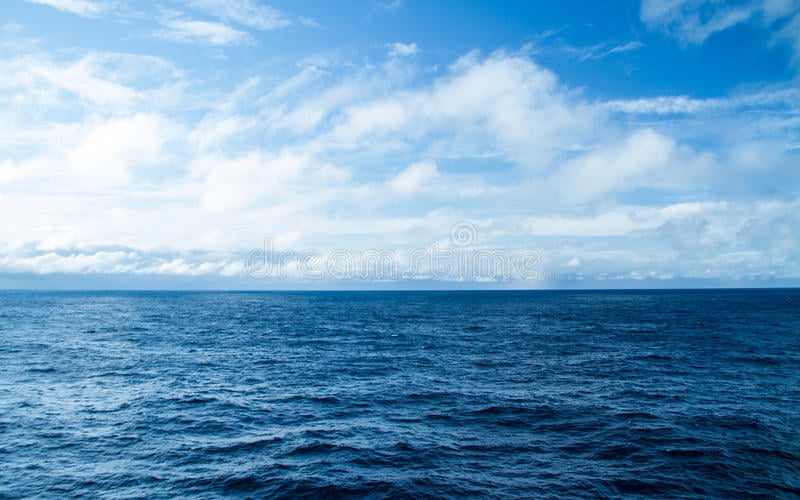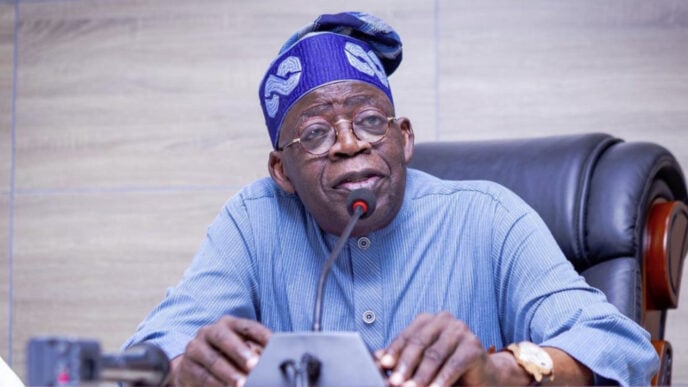BY DARE AKOGUN
As the world prepares for the third United Nations Ocean Conference (UNOC3) in June 2025, hosted jointly by France and Costa Rica, ocean governance has once again risen to the top of the global agenda.
Set against the Mediterranean backdrop of Nice, world leaders, scientists, civil society actors, and financial institutions will converge to accelerate action towards Sustainable Development Goal 14 (SDG 14): the conservation and sustainable use of oceans, seas, and marine resources.
For Sub-Saharan Africa, particularly Nigeria, which boasts one of the most expansive and economically strategic coastlines in the Gulf of Guinea, the conversation is not just about ocean health but also about national survival, economic transformation, and regional stability.
Advertisement
Ocean Governance
Ocean governance refers to the system of laws, policies, institutions, and practices through which the ocean and its resources are managed and protected. It is the conduct of public policy, administration, and the rule of law concerning the oceans, especially beyond national jurisdictions.
With over 70 per cent of the Earth’s surface covered by water, effective ocean governance has emerged as a linchpin in mitigating climate change, ensuring food security, safeguarding biodiversity, and preventing conflict.
Advertisement
For Nigeria, a nation grappling with maritime insecurity, unregulated fishing, and environmental degradation, the UNOC3 arrives at a pivotal time.
“Protecting the oceans means protecting an immense carbon sink and unimaginable biodiversity reserves,” French President Emmanuel Macron declared at a high-level event in Costa Rica ahead of UNOC3. “It also means giving hope to all those whose lives depend on our oceans.”
Nigeria’s Blue Economy Drive: Policy in Motion
In August 2023, Nigeria created the Federal Ministry of Marine and Blue Economy, signifying a major policy shift towards integrated maritime development. The ministry’s four-pillar strategy, Strengthening Blue Governance, Transforming Port Operations, Enhancing Port Infrastructure, and Promoting Sustainable Investments, demonstrates a recognition of both the threats and opportunities within Nigeria’s 853km coastline.
Advertisement
By 2026, the ministry plans to establish a National Coast Guard, publish a comprehensive National Policy on Marine and Blue Economy, and train at least 4,000 new seafarers. These ambitious targets reflect a drive to assert control over the country’s Exclusive Economic Zone (EEZ), where illegal, unreported, and unregulated (IUU) fishing has become rampant.
Dr. Gbolahan Adebiyi, a Lagos-based maritime security analyst, told DA NEWS that “Nigeria loses over $70 million annually to illegal fishing alone. Strengthening governance is not an option; it’s a necessity.”
From Ghana to Senegal, Kenya to Mozambique, Sub-Saharan African nations face similar challenges: weak enforcement of maritime laws, lack of technological capacity, and increasing vulnerability to climate-induced sea-level rise.
“Dead zones,” areas in the ocean depleted of oxygen and incapable of supporting marine life, are spreading along African coastlines.
Advertisement
According to the UN, plastic pollution, ocean acidification, and warming seas are degrading fisheries and pushing coastal communities deeper into poverty.
Yet, only a fraction of SDG 14 funding flows to Africa. SDG 14 remains the least funded of all global goals, despite the ocean’s critical role in sustaining more than 3 billion people globally, especially small-scale fishers.
Advertisement
“We are drowning in climate impacts and suffocating under debt,” said Fatima Dlamini, Policy Lead at the African Ocean Forum. “It’s time the global North invested not in charity, but in our marine resilience and sovereignty.”
The Enforcement Gap: Nigeria’s Maritime Governance Dilemma
Advertisement
Despite multiple regulatory agencies, the Nigerian Maritime Administration and Safety Agency (NIMASA), the Nigerian Navy, and the Nigerian Ports Authority, coordination remains a thorn in the side of Nigeria’s maritime security efforts.
“The reality is that too many cooks spoil the ocean,” quipped a senior naval officer who requested anonymity because he wasn’t authorised to speak to the press. “We need a single, accountable force like the Coast Guard to enforce maritime law decisively.”
Advertisement
This enforcement vacuum has allowed transnational criminal networks to thrive, from arms smuggling to human trafficking and oil theft. It also undermines Nigeria’s capacity to police its marine protected areas (MPAs), further weakening conservation efforts.
With an ambitious goal of creating 3 million blue economy jobs by 2027, Nigeria is betting big on investments in fishing, seabed mining, coastal tourism, and offshore renewable energy. The Ministry has already targeted $2 billion in renewable energy investments and the establishment of five new fish processing plants by 2025.
However, marine scientists caution that sustainability must come first.
“Without strong governance and environmental safeguards, this could be a case of jumping from the frying pan into the fire,” said Prof. Nnenna Oguike, a marine biologist at the University of Lagos. “The same extractive logic that destroyed our oil-producing communities must not be transferred offshore.”
Nigeria’s recent commitment to ISPS Code compliance across all port facilities by 2026 and the implementation of the International Cargo Tracking Note (ICTN) could improve port security, deter smuggling, and enhance the credibility of the country’s maritime sector in the global market.
Akinwale Ogundare, President of Kwara Fishermen Cooperative Union, adds: “Small-scale fishers must be at the heart of any blue economy plan. We’re not against development. We want to be part of it, not swept aside by it.”
The Nice Ocean Agreements: A Turning Point?
France has proposed that the Nice Ocean Agreements, expected to be adopted at UNOC3, would act as a framework akin to the Intergovernmental Panel on Climate Change (IPCC) with the goal of integrating science and policy in ocean management. The conference will also adopt the Nice Ocean Action Plan, featuring voluntary commitments from governments, private sector players, and civil society.
Nigeria’s delegation is expected to push for increased financial and technical support for African maritime states, a demand echoed by multiple stakeholders from the continent.
“This must not be another talk shop. Africa needs financing, not just pledges,” warned Mavis Akor, programme officer at the African Marine Conservation Institute.
What Lies Beneath: Local Realities, Global Ambitions
While international forums and policy blueprints are essential, the battle for ocean sustainability will be won or lost in Nigeria’s riverine communities in places like Bonny, Escravos, and Ikot Abasi, where oil spills poison waters, industrial trawlers displace artisanal fishers, and mangroves disappear.
Ocean governance, experts agree, must include local knowledge, indigenous rights, and community-led conservation. Without this, Nigeria’s blue economy could sink before it sails.
Nigeria’s efforts to reposition itself as a blue economy leader in Africa are laudable. But without strong ocean governance anchored in the rule of law, enforcement, community engagement, and international cooperation, the country risks repeating the mistakes of its fossil fuel era.
As the world looks to Nice in 2025, Nigeria must rise to the moment not just with lofty ambitions but with measurable actions. The ocean does not wait. And neither should we.
Dare Akogun is an environmental & energy transition journalist based in Kwara state, he will be attending the UNOC 3 conference in France. He can be reached via [email protected]
Views expressed by contributors are strictly personal and not of TheCable.









